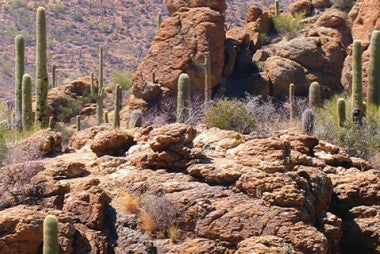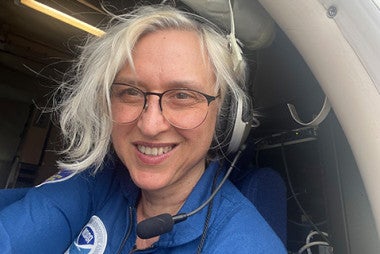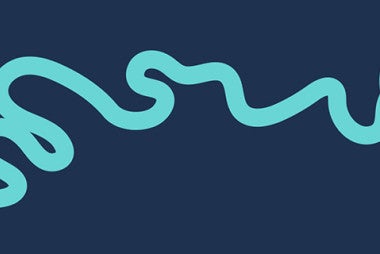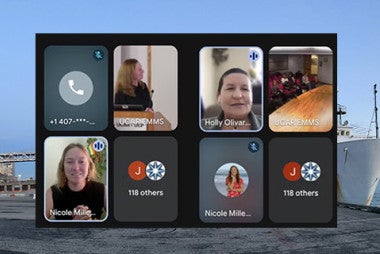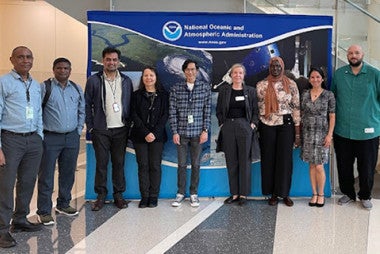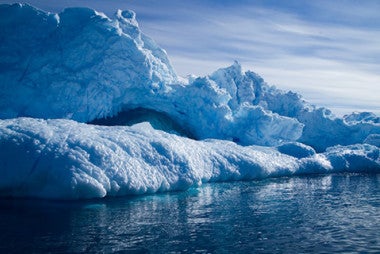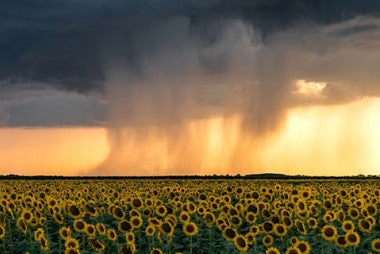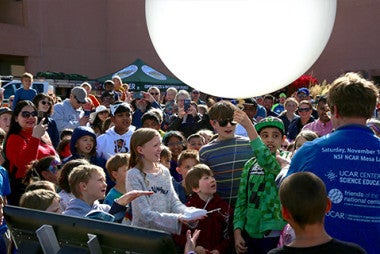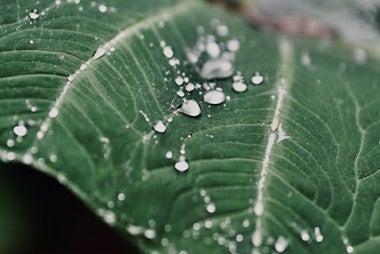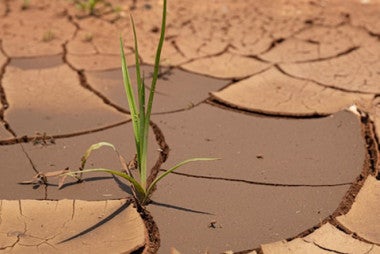Summer Institute: The Vigor of Postdoc Research with the Fun of Summer Camp
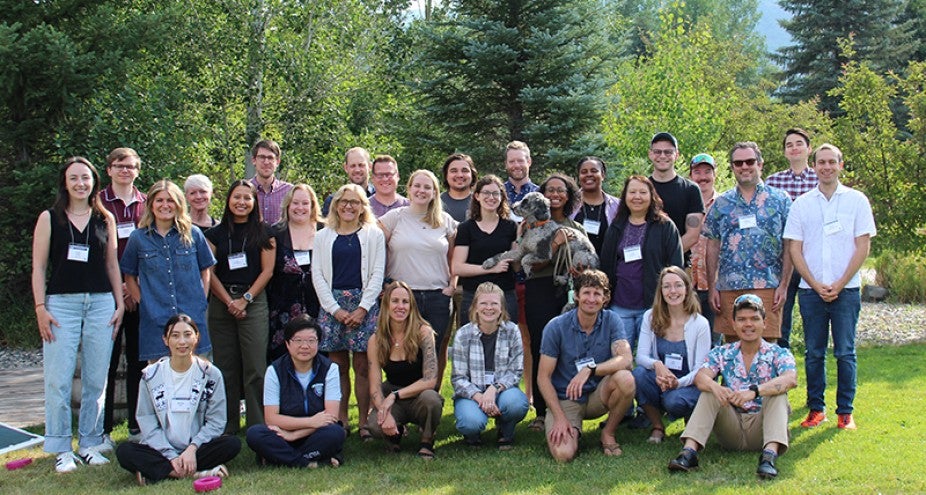
Research scientists who attended this year’s NOAA Summer Insitute in Steamboat Springs, CO.
Every two years, SPS | CPAESS hosts the Summer Institute in partnership with NOAA for the Climate and Global Change Postdoctoral Fellows. This July researchers from across the U.S. to gather in Steamboat Springs, Colorado for this Summer Institute. The comradery and research-sharing was without rival, and several participants shared that the atmosphere reminded them of summer camp.
The NOAA Summer Institutes is held every other year as part of the NOAA Climate and Global Change Postdoctoral Fellowship program. The primary goal of the Institute is to build a stronger global climate change community by introducing the postdoctoral fellows, who are hosted at research institutions throughout the U.S., to each other and more senior scientists. Its schedule consists of 4 days of scientific talks, interspersed with periods of recreational activities, and spirited discussions covering the wide range of disciplines represented by the expertise of the participants.
The goal of the Institute is to bring together present and former fellows as well as host scientists, program sponsors, and other invited guests to share cutting-edge research accomplishments and discuss the future of climate research as it pertains to global climate change. As part of this 34-year-old climate fellowship, the Summer Institute was created to develop a sense of community among climate and global change postdoctorates and senior researchers; to explore the breadth of climate and global change research problem areas; to discuss the future directions of climate science research; and to discuss the bridge between climate and global change scientific goals and public policy.
This year, the Summer Institute was under the co-leadership of Brandon Wolding and Pat Keys. Brandon is a research scientist at the NOAA Physical Sciences Laboratory (PSL), where he uses process-oriented diagnostics to improve model representation of tropical convective variability, cloud organization, and ocean-atmosphere coupling. Brandon began his work at NOAA PSL as a NOAA Climate and Global Change fellow in 2018, and then joined the Atmosphere-Ocean Processes and Predictability team in August of 2020. His partner in leading the institute was Pat who is an Assistant Professor in the Department of Atmospheric Science at Colorado State University. His research is focused broadly on climate and societal change, examining climate extremes, the changing atmospheric water cycle, and designing radical scenarios of the future. As co-leads these gentlemen helped set the tone of this Summer Institute. They not only organized the scientific talks and guest speakers, but infused a sense of fun and friendliness into the week.
The institute began with welcome talks from SPS | CPAESS Deputy Director Cindy Bruyère as well as the co-leads Brandon and Pat. Presentations addressing the topic of Ocean | Ice | High Altitudes were chaired by Malte Stuecker with talks given by Lily Hahn, Lillian Dove, and Channing Prend. These were followed by Ocean | Paleo talks by Noam Vogt-Vincent and Ronnakrit Rattanasriampaipong. Before the final discussion led by Brandon and Pat on creating a framework for future thinking on climate science, there was a barbeque with river tubing and yard games for folks to get together casually and network.
On Tuesday, there were talks about Wildfire | Chemistry by Makoto Kelp, Tianjia (Tina) Liu, and Qindan Zhu led by subject chair John Krasting. This was followed by presentations by John Krasting (NOAA GFDL); Kirsten Mayer (NC AR); Oliver Watt-Myer (Class 26, AI2); and Steven Brey (Amazon) all addressing aspects of the Changing Landscape of Earth System Science Prep. In the evening was a panel discussion.
The next day, brought presentations on Climate Dynamics with subject chair Kirsten Mayer from Clare Singer, Arianna Varuolo-Clarke, and Jhordanne Jones. This was followed by Ecology | Biogeochemistry talks led by subject chair Lisa McManus from Kathryn Wheeler, Germán Vargas Gutierrez, and Aaron Potkay.
After hiking and dinner, the group reconvened with a panel discussion on career trajectories and discussions of funding and project management. Additionally, Dr. Hallar joined us from the University of Utah with Research Experiences for Undergraduates (REU) students, who were able to listen in to the panel discussion and ask questions of the scientists as they considered their academic and career pathways.
On Thursday numerous talks describing opportunities for the fellows to expand their skill sets and learn how other scientists have expanded them in their careers took place in the morning with presentations by Lori Bruhwiler (NOAA GML), Samantha Wills, Jessica Tierne, and Lisa McManus. This was followed by a tour of Storm Peak Lab.
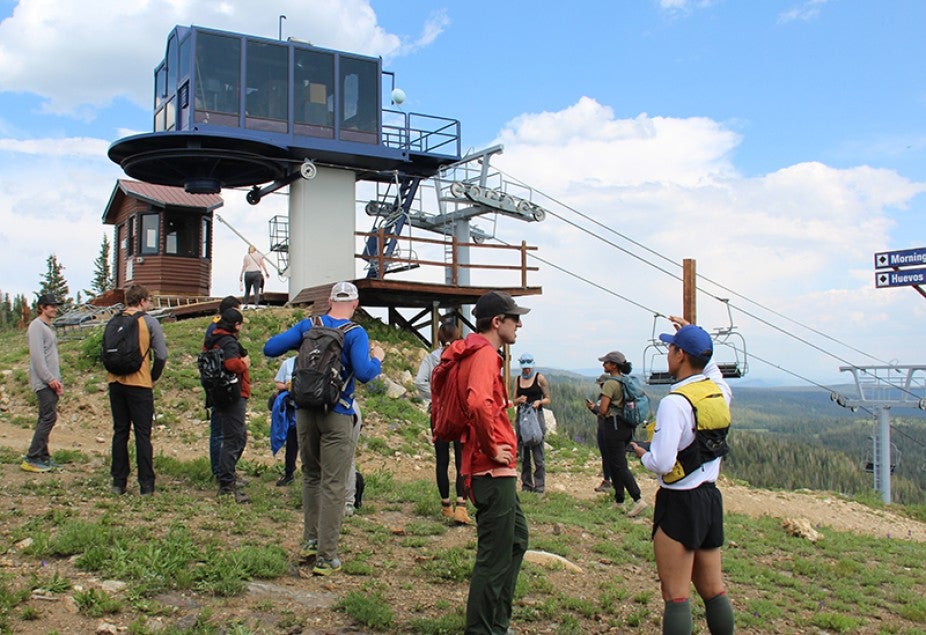
Scientists chat with each other after the tour of Storm Peak Laboratory where both atmospheric and hydrological research takes place all year around.
Dr. Gannet Hallar, the Storm Peak Lab Director from the University of Utah’s Atmospheric Sciences Department, provides our attendees tours every Summer Institute explaining the various types of research the lab facilitates. “Storm Peak Laboratory [SPL] hosts atmospheric science and hydrology field courses from a multitude of universities for both undergraduate and graduate students. Colorado State University, University of Colorado, University of Nevada, and University of Wisconsin courses are common at SPL (Source).”
The attendees also created brief social media videos sharing and explaining their science so that the larger Earth system science community can get a better sense of their research and the value this prestigious program has in service to us all.
This Summer’s Institute was another successful gathering where different classes of fellows could get together, learn about each other's science, learn from other scientists in the field, and strengthen the climate change research community through networking and friendship. A special thank you to our NOAA partners Jin Huang, Division Chief of Earth System Science And Modeling Division (ESSM) and Virginia Selz, Program Manager of Climate Variability and Predictability (CVP); our co-workers at NOAA Climate Program Office Samatha Wills, Climate Observations and Monitoring (COM) Program Manager and Clara Deck, Communication Specialist; and our SPS | CPAESS Deputy Director Cindy Bruyère, Meeting Planner Maggie Costley, Program Coordinator Kate Rodd, and Communications Manager Dawn Mullally.
Learn more about the Summer Institute and the NOAA Climate and Global Change Program.
